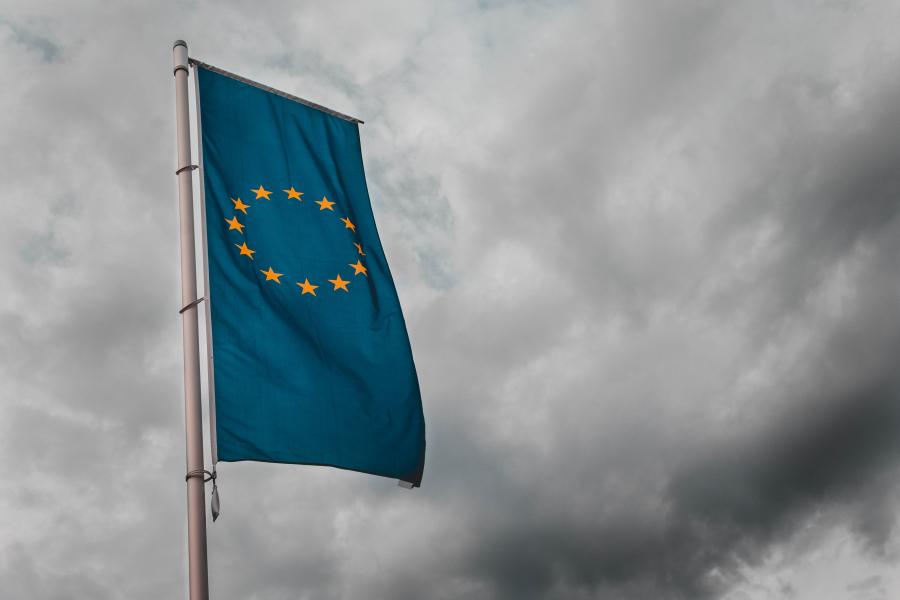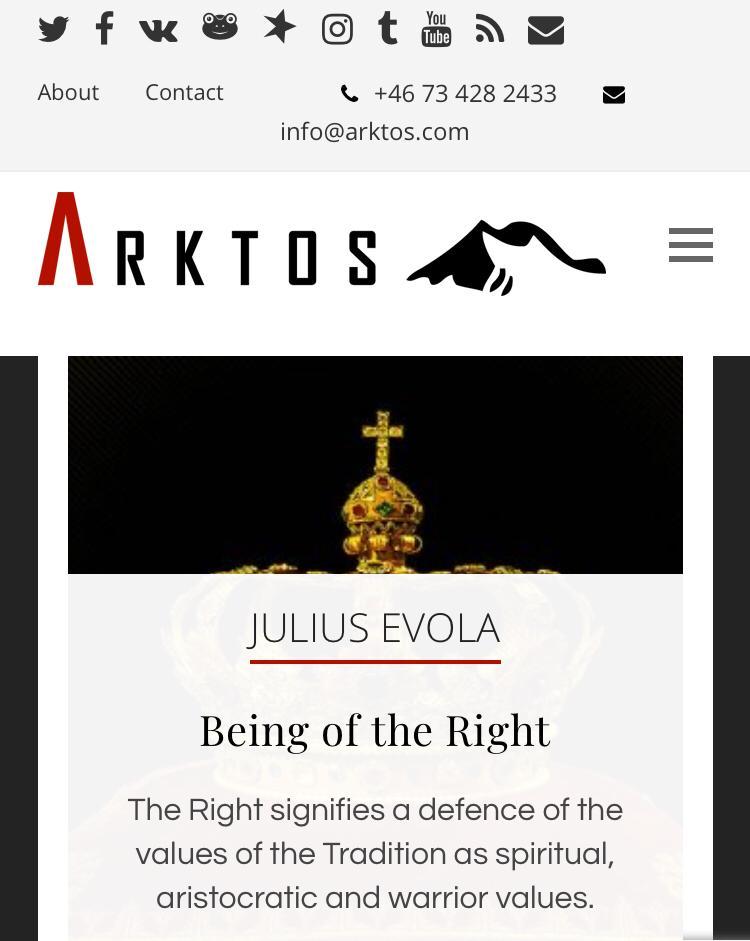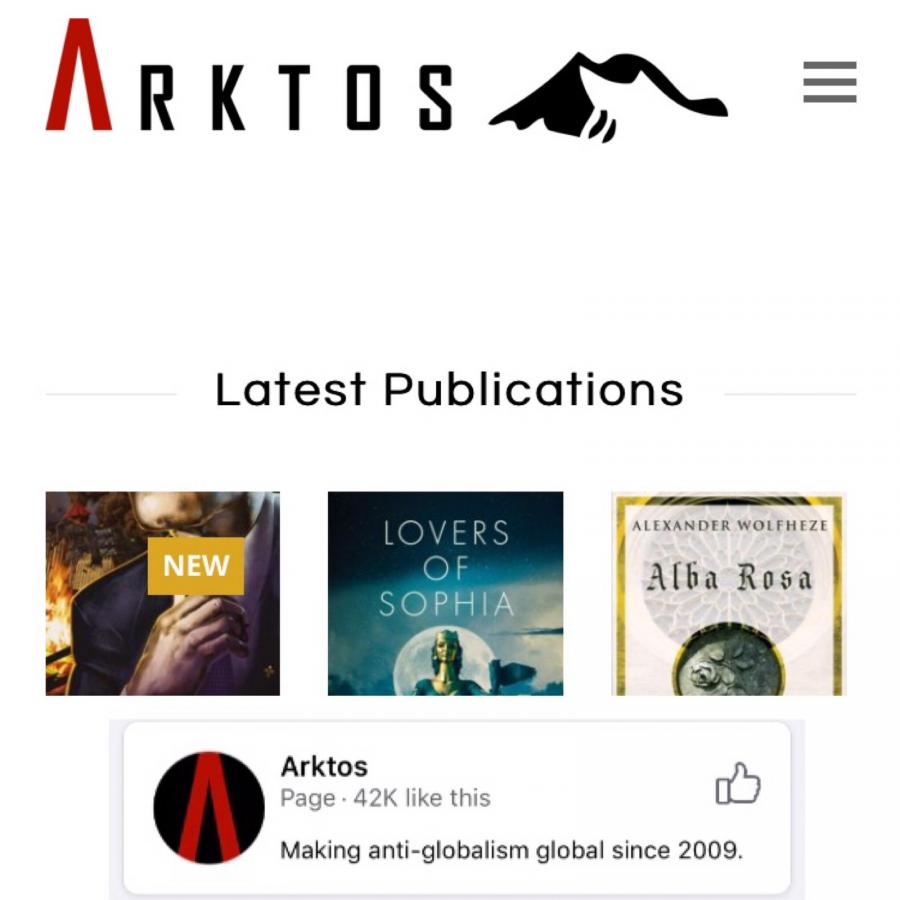
The Transformation Of The Digitized Public Sphere & Its Consequences
The aim of this article is not to establish a new political theory but to reflect upon current events in Western countries by specifically focusing upon the ‘European New Right’ sometimes also referred to as the ‘true European right’.
It highlights the global rise of ultranationalism that is purported by the explosion of the use of social networks and concludes that there is a new digital sphere that promotes digitized nazism.
Are EU Politics Boosting Far-Right Activism?
The uncertainty of a continuous unified European ideology, with an institution that promotes the decreased power of sovereignty as well as asks for the conciliation of culture by diminishing the motives for borders that separate each country, is slowly coming to life.
Problems such as the dwindling job market, the lack of representation in the democratic decision-making process causing a decrease in young voters, the Refugee crisis fueling discussions for the increase in border controls in southern parts of Europe and the buzz of Brexit are giving new grounds for the rise in nationalist parties in Europe.
Is it fair to say that therefore EU politics is boosting far-right activism?
It is partially vital to note that there has always been a nationalistic strive in Europe, especially when taking into account the historical background of the countries partaking in the EU. This, nevertheless, has been one of the main forces for creating the Union that is now fundamentally being challenged.

It is the digitalization transforming the lives and structural apprehends of Europe that has caused an increase in the support system for the European new right. This is a factor mainly ignored when analyzing the true European new right, that there is a corroborated connection between the use of social networks, the influence of bots and the algorithmically advanced platforms playing with the innocent minds of the users. This, in fact, has influenced society but it is not possible to stop these rapid changes.
Digitalization is advancing the economic sectors of the European market by implementing digital single-market strategies. The usage of connected devices and artificial intelligence (AI) are fulfilling tasks that are helpful to gain accelerated access, proof that it is indeed difficult to stop digitized influences in society. The Fifth political theory is there to give clarity and raise awareness that the potential of digitized platforms is abused if digitized nazism takes centre stage.
Digitalization should not be abolished or diminished in this sense, but instead, there needs to be more research conducted to understand the influence it has on society. The freedom experienced on this platform in the social network world, including the lack of regulations, has repeatedly caused the spread of false stories that in turn create ideologies and gain the support of the masses.
As with many conspiracy theories and pseudoscientific movements such as the anti-vaccine epidemic, it is noticeable that digitized nazism is mainly supported by online activism, which finds its core spread of false beliefs on social media platforms.
It is within the Fifth political theory that the observed phenomenon depicts the transformed public sphere into a digitized one. Or it can be viewed that the digitized space is a new sphere, fueled by no structured regulations or authoritarian control. On the one hand, this is a positive factor and relieves the idea of the development of a tyrant, but on the other hand, this is creating minor movements that base their main purpose on bogus facts. These movements tend to find each other again and again, and eventually cluster together to create one foundation, that practically resembles the feared tyrant of democracy, now a virtualized version in the digital sphere.
How Does The Internet Relate To Nationalism?
The affiliation between nationalism and the internet has been discussed by T.H. Eriksen in the article ‘Nationalism and the Internet’. In the article, the core concepts of nationalism were discussed including its development on the Internet. It is, however, vital to note that this was written in the year 2007, which is still the beginning years for social- network platforms, hence, there were no real tangible problems in relation to social media's influence on society. Consequently, the paper lacks a greater understanding of social media, bots or even algorithmic influences, but it does give an overview and a prediction of nationalism in relation to the internet.

One of the problems Eriksen came across, was with the definition of nationalism in relation to the Internet. He encountered that according to Gellner, nationalism is defined as "chiefly territorially based" due to ethnicity and the political stance, that is "political and the national unit should be contingent" (Eriksen 2007). This developed into the concept of de-territorialization of nationalism, in which the power lies within the "annual rate growth", thus, disregarding the size of the map of a nation (Eriksen 2007).
Eriksen, ergo, developed the notion of "virtual nationalism", but within this term, the relationship between cultural similarity and national identity was not yet clarified. The "congruence of political unit and of culture", according to Gellner, needs to apply to nationalism (Erikson 2007).
Homogenization of culture is unnecessary since virtual nationalism continuously grows through the web of communication encompassing the globe (Erikson 2007). The notion of McLuhan states that the web of relationships is key in influencing and forming a community. The web is a space in which we can experience human plurality, which is boundless, irreversible and unpredictable. That on a global scale means that "the community with which individuals identify can also, [...], encompass the globe" (Erikson 2007).
The authenticity of nationalism is indeed not lost on the Internet. "The nation is a collective of individuals and a collective individual", corroborated with the development of the Internet it was predicted that the population would fragment and destroy national identities (Erikson 2007). This is not necessarily true, since the technologies of the Internet strengthen the identities of nations, by connecting all over the world fragmented individuals that are part of one nation. The internet offers modes of communication that are one-way functioning or bilateral and contribute to the idea that this is re-embedding technology (Erikson 2007). It allows, for example, immigrant groups to follow television, blogs, and news from their home country.
The websites that offer this medium can also include aims of nation-building, as with the example of KuridshMedia (Erikson 2007). On that website, a scientific approach was developed to promote the language, art, and culture of the Kurds. The same approach can be found within the European New Right, specifically, Arktos Media/ITP, which is the "biggest publisher of traditionalist, conservative, nationalist, Identitarian and overall alt-right literature in the world", stated the head of Arktos (Valencia-Gracia 2018).

Ideally, the Internet is a fantastic concept in which "people have developed a sense of belonging to a community" and "a sense of familiarity and intimacy among regular users which bears some resemblance to real-life interaction" (Erikson 2007). As in the case of the Kurds, the Internet allowed for the re-development of a virtual nation, but if this development is compared to Arktos, the Internet has also developed a space for virtual nationalism that consequently allows for digital nazism.
The modes of communication significantly increase the available complexity of the connections, therefore the following discussion focuses on the influence of political communication, computational propaganda and autonomous agents.
New Forms Of Communication In The Digital Sphere: How Do Bots, Algorithms, & Automated Political Communication Control Our Lives?
There is undeniably a new form of communication in the digital sphere that has allowed for scandalous results, such as the election of Trump as the 45th President of the USA and the Brexit referendum. The network is "a dynamic set of social, norms, rules and patterns of use" that is rapidly changing through the increase in digitalization (Woolley & Howard 2016).
These new forms of communication are enabled through the development of technologies, bots, and algorithms that interfere with political communication with society (Woolley & Howard 2016). Communication in this sense is automated, basically, a bot functioning that studies human conduct on social or device networks on the web that is interactive and politically focused (Woolley & Howard 2016).
It is clear that the use of bots is in demand and there are three reasons why it influences people in their decision making. First, the increase in social or device networks is substantially high, to the extent that there are "more devices than people, and the devices continue to share information even when we are not personally using them" (Woolley & Howard 2016). The platform offers an "immense network of opportunity and a significant infrastructure for abuse" (Woolley & Howard 2016).
Second, the incredible influence of the internet can be explained by the fact that in "2020 everyone will effectively be online" (Woolley & Howard 2016). This means that the economy, politics, and culture are shaped throughout by digital media. The individual, in this case, is connected virtually to everyone.
The third point is that all individuals will soon be digital natives, a term referring to people whose lives have been completely encompassed by device networks that include almost "50% of the Internet-population". (Wolley &Howard 2016).

The control and influence digitalization has on us is certainly overwhelmingly existent, along with recent events such as the election of Trump, Brexit, the Refugee crisis and the recent boom in voter support for right-wing and populist parties, that is there is an underlying correlating connection. These events appear to be peculiarly intertwined and coincident, supporting the aforementioned conjecture.
Right-wing activism is utterly ubiquitous on the internet and sometimes in perfidious disguise. ArktosMedia, founded in 2009 by Daniel Friberg (CEO) and John B. Morgan, is a platform in which European New Right authors translated writing gets published. The website and the beliefs of individuals who identify with Artkos depict the classic far-right propaganda. That is to admire "masculinity and nationalism, inciting Islamophobia" and the editors supporting proudly Richard Spencer a white American Nationalist (Valencia-Gracia 2018).
The success of ArktosMedia can be explained by their application of spreading bogus facts that romanticize the past of agrarian Europe. Arktos uses the Internet because far-rights were suppressed following the Holocaust and therefore the platform gives them space "to form an interconnected global movement" referred to as "digital imagined communities" (Valencia-Gracia 2018).

The ‘digital imagined communities’ came to existence as conceived by Arktos founders. In the article 'Digital Imagined Communities In The Digital Sphere Creating Digital Nazism' part examples and evidence are given that showcase the immense influence of far-right-wing parties in the digital sphere. It is argued that there is digital nazism that is fueled by the benefits of social network platforms that are transcending the thoughts and structural appearances of society.
Repeating History: The Potential Dangers That Arktos Digital Imagined Communities Might Bring In Relation To The Rise Of The European New Right Political Parties
To continue the discussion on the ideology of the Fifth political theory in which examples are portrayed of digital nazism fueled through the digital imagined communities in the digital sphere, it is vital to reflect upon the actual dangers of far-right movements. Particularly it is important to look at the similarities of today's far-right parties in Europe to the previous nazis and fascistic ideologies, that were once ideologized in the past.
These similarities are also reflected in ArktosMedia’s website for its main aims and purpose of launching its radical content online. That is far-right parties and also ArtkosMedia, argue for restoring some imagined lost past that is an over-romanticized idea of Europe (Valencia-Gracia 2018). These praxes are of Nazism and Fascist kind since the main motif of their campaigning was for a "national rebirth" (Wolff 2015).
Although ArtkosMedia never explicitly claims to be fascist, it is noted that the books published on the website showcase fascism, and far-right, white supremacist ideologies (Valencia-Gracia 2018). Again similar tactics are applied by far-right political parties such as AfD, in which the political party claims to not tolerate racism or xenophobia, but argues that there is a lack of German representation in the streets of Germany.

The cast of denial and claiming of distorted facts that are reflected in their actions are identical to the customs of fascist Italy and Nazi Germany. For example, Hitler rejected nationalism completely, that is he labeled the concept as a decoy (Wolff 2015). This is however not reflected in his actions. Since Hitler established racism as a biological category, an outsider came into being. Thus, the racial categorization caused various forms of nationalism which enforces the "outside status", that is that someone is not belonging to the nation because of racial differences (Freeden 1998).
Accordingly, these schemes nowadays tend to result in the abating of a multicultural super-diverse nation. This is also addressed in the other article dealing with the Fifth Political theory and the digital imagined communities in the digital sphere create digital nazism.
References
Ali (2016, March 31). The 5th Political Theory- Introduction. Retrieved December 11, 2019.
BBC. (2017, October 13). German election: How right-wing is nationalist AfD?. Retrieved December 12, 2019.
BBC. (2019, November 13) Europe and right-wing nationalism: A country-by- country guide. Retrieved December 15, 2019.
Bröning, M. (2016, June 3). The Rise of Populism in Europe. Retrieved November 28, 2019.
Champion, M. (2019, January 22) The Rise of Populism. Retrieved November 15, 2019.
European Commission. Promoting our European way of life. Retrieved December 27, 2019.
European Parliament (2019, January) Ten issues to watch in 2019. Retrieved December 14, 2019.
Erikson, T.H. (2007) Nationalism and the Internet. PG 1-17. Retrieved November 1, 2019.
Freeden, M. (1998) Is nationalism a distinct ideology?. Retrieved November 1, 2019.
Keith, P. (2018, December 3) Do we need a Fifth Political Theory?. Retrieved December 23, 2019.
Kleinman, Z. (2018, March 21) Cambridge Analytica: The story so far. Retrieved December 13, 2019.
Lewis P., Barr C., Clarke S., Voce A., Levett C. & Gutierrez P. (2019, March 6) Revealed: the rise and rise of populist rhetoric. Retrieved December 23, 2019.
McCrory, S. (2019, December 21) I left increasingly right-wing britain and now I don’t know if I will ever return home. Retrieved December 23, 2019.
Tsige Tamirat, B. (2019, April 15) Anti-vaccine movement: the epidemic of stupid. Retrieved November 14, 2019.
Valencia-Gracia, L.D. (2018, January 31) The rise of the European Far-Right In the Internet Age. Retrieved November 1, 2019.
Wolley S.C. & Howard P.N. (2016, September 3) Political Communication, Computational Propaganda, and Autonomous Agents. Retrieved November 1, 2019.
Wolff, N. (2015) Exploiting nationalism in order to repudiate democracy: the case of Facist Italy and Nazi Germany. Retrieved November 1, 2019.